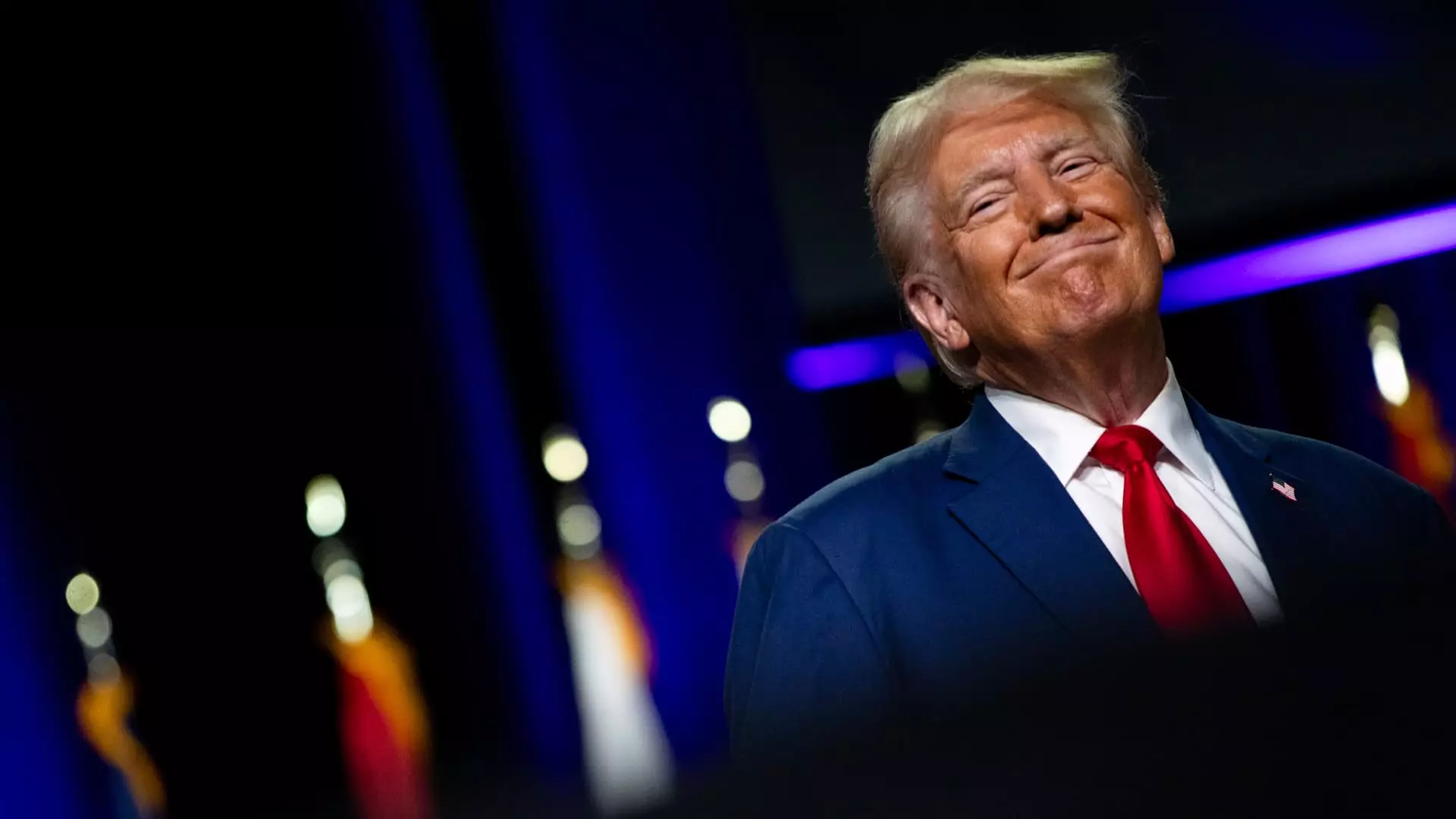The intersection of technology and politics has reached unprecedented levels in recent years, raising questions about power dynamics and the ethical implications of partnerships between influential tech CEOs and political leaders. As Donald Trump prepares for another presidential term, the responses of significant tech figures like Mark Zuckerberg, Jeff Bezos, and Sam Altman bring to light their often tumultuous pasts with the former president. Analyzing their current movements reveals not just personal motivations but the potential direction of technology regulation and corporate influence in governance.
Since Trump’s ascent to the presidency, he has been vocal in his criticism of major tech companies. His accusations ranged from tax evasion to stifling competition. One of his most notable critiques was aimed at Amazon, founded by Jeff Bezos, which he has openly accused of manipulating services to undermine the U.S. Postal Service. Trump’s disdain is reciprocated; Amazon has previously pointed to Trump’s unfavorable actions as a reason for losing a lucrative Department of Defense contract. This mutual animosity highlights a narrative of distrust that has complicated the relationship between Trump and the tech industry.
Moreover, Trump’s approach to antitrust enforcement has implications for companies like Meta and Amazon, who are facing increasing scrutiny for monopolistic practices. The nomination of Gail Slater to lead the antitrust division of the Department of Justice under Trump’s administration signals a new phase of aggressive regulatory actions. Slater’s previous experience with Trump during his first term paints a picture of continuity in policies that could potentially dismantle the very structures that allowed these tech giants to thrive.
Despite their critical history, key players in the tech sector seem to be pivoting toward a strategy of appeasement as Trump prepares for his inauguration. Both Meta and Amazon confirmed donations of $1 million to Trump’s inaugural fund, indicating a willingness to collaborate or at least coexist with a contentious administration. Altman’s planned donation represents not only a personal allegiance to Trump but also a strategic move for OpenAI, which may seek to align itself with a government poised to influence regulations surrounding artificial intelligence.
Interestingly, Altman’s public assertions highlight his optimism about Trump’s vision for integrating AI into governance despite the inherent contradictions in supporting an administration that has previously criticized Big Tech. Altman’s statement positions him as a proponent of technological leadership, which is essential for maintaining America’s competitive edge in AI. His legal disputes with Musk over the control and future direction of OpenAI further complicate this dynamic, underlining the competitive nature of leadership within the tech space amid ongoing relationships with political figures.
As relationships between these tech leaders and Trump evolve, they are complexly intertwined with personal ambition and broader strategic aims. Bezos, once a vocal critic of Trump, seems to have shifted from adversary to potential ally, expressed through his optimistic viewpoint on a regulated tech environment that could foster economic growth. This strategic pivot illustrates the delicate balancing act tech CEOs must perform, being simultaneously wary of political fallout while positioning themselves in favor of beneficially aligned policies.
Moreover, the rivalry between Musk and Altman further complicates the narrative. Once collaborators, their paths have diverged significantly, with Musk now accused of politicizing his AI ambitions to align with Trump’s agenda. Musk’s commitment of substantial funds to support Trump’s campaign raises alarms regarding how governance and policy in AI might be shaped primarily for corporate benefit rather than public good.
As Trump eyes his return to the White House, the relationships he cultivates with influencers from the tech world may dictate future policies and regulations surrounding technology. The anticipation of a regulatory environment that is less stringent offers a tantalizing prospect for these tech giants, but it is also fraught with risks. There is a fine line between influence and overreach; tech leaders may soon find their partnerships with political figures could jeopardize public trust and create an environment ripe for scrutiny.
The ethical implications of these relationships cannot be ignored. As these corporate giants negotiate their positions within Trump’s upcoming administration, there needs to be a focus on ensuring that technological advancements do not come at the expense of democratic principles or ethical standards. Navigating this intricate web of alliances and rivalries will shape not just the future of these companies but also the trajectory of American tech innovation itself.
Ultimately, as President Trump’s tenure looms, the interplay between tech magnates and political power beckons a cautious yet strategic examination. Balancing ambition, ethics, and the public good will be paramount in how this complex relationship unfolds.

